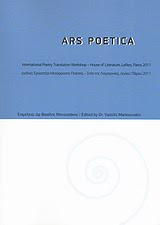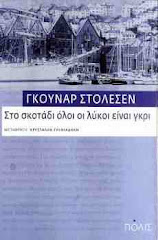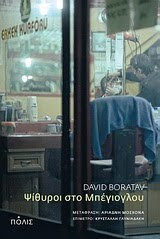Το πρώτο πράγμα που γίνεται αντιληπτό από έναν επισκέπτη της σημερινής Ιστανμπούλ είναι ― πέραν της απαράμιλλης, φυσικής της ομορφιάς ― η πολυπλοκότητά της, η συνύπαρξη Ρωμαϊκών, Βυζαντινών και Οθωμανικών χτισμάτων και παλατιών με υπερσύγχρονους ουρανοξύστες και γέφυρες, οι πανάκριβες βίλλες, με εκατοντάδες χιλιάδες εργατικές πολυκατοικίες και χαμόσπιτα. Η Ιστανμπούλ είναι ένας πίνακας κυβιστικός, πολυδιάστατος, αδύνατον να χαρακτηριστεί εν τω συνόλω. Κάτι τέτοιο, φυσικά, περιμένει κανείς απ’ όλες τις μεγαλουπόλεις του κόσμου, πόσο μάλλον από μια πόλη δεκαπέντε εκατομμυρίων κατοίκων, δύο ηπείρων, τριών θαλασσών και έξι νησιών: πού αλλού συμβαδίζει συνειδητά η μιζέρια κι η άγνοια της φτώχιας με τη θρασύτητα και την υπερβολή του πλούτου, αν όχι εδώ; Πού αλλού ο θρησκευτικός φανατισμός μια συντάσεται και μια συγκρούεται με το συντηρητισμό του κοσμικού καθεστώτος; Πού αλλού μοιάζει η μύχια μοναξιά να τρέφεται από τ’ αμέτρητα πλήθη των ανθρώπων, αν όχι σε μια μεγαλούπολη του 21ου αιώνα;
Η ιδιαιτερότητα, λοιπόν, της Ιστανμπούλ δεν έγκειται στην εμφανή της πολυπλοκότητα ― την οποία άλλες, πολύ πιο οργανωμένες και νεότερες μητροπόλεις (όπως το Λονδίνο του Τζούλιους Λεντζ) μόνο να προσποιηθούν μπορούν. Ούτε στην πολυπολιτισμικότητά της ― έναν τομέα στον οποίο μειονεκτεί παρασάγγας, πια, σε σχέση με την υπόλοιπη Ευρώπη.
Η ιδιαιτερότητα της Πόλης είναι κάτι πολύ πιο φευγαλέο κι αφηρημένο από το συνονθύλευμα εκατομμυρίων διαφορετικών ιστοριών σ’ ένα πεπερασμένο γεωγραφικό χώρο· και είναι η εξής: η Ιστανμπούλ είναι ρευστή, ευμετάβλητη, απατηλή, δεν υφίσταται πέραν των εικόνων και των εντυπώσεων που σχηματίζει κανείς βλέποντάς τη. Είναι εκατομμύρια πόλεις μαζί, όσοι και οι θεατές της, μα ποτέ μία· είναι ένας καμβάς πάνω στον οποίο ο καθένας ζωγραφίζει τη δική του πόλη δίχως ποτέ να μπορεί να δαμάσει την πραγματικότητα. Ο Boratav τη χαρακτηρίζει λεηλατημένη, επανειλημμένως ξεκοιλιασμένη. Κάθε γενιά της πρέπει να την πλάσει από την αρχή, να ξαναβρεί ιστορικά σημεία αναφοράς, μόνο και μόνο για να τ’ απωλέσει ξανά μερικές δεκαετίες αργότερα. Τζαμιά γκρεμίζονται και χάνονται, Βυζαντινοί λιμένες ανακαλύπτονται κάτω απ’ τη λάσπη αιώνων, μοντέρνες γέφυρες χτίζονται πάνω σε συντρίμμια ιστορικών κτηρίων, οι εθνικιστές διώχνουν τους αυτόχθονες για να παραμεριστούν με τη σειρά τους από τους ανατολίτες: η Ιστανμπούλ κυλά μες στο χρόνο, μεταμορφώνεται με τη δυναμικότητα, την ταχύτητα και την επικινδυνότητα που συνυπάρχουν κι εναλάσσονται τα τρία ρεύματα του Βοσπόρου. Κι έτσι, κάθε λίγο, αναγεννάται στις συνειδήσεις των κατοίκων της, ο ένας καμβάς πάνω στον άλλο, σαν ένα πρισματικό γυαλί που αλλάζει μορφή και χρώματα ανάλογα με το πώς το χτυπά ο ήλιος.
Η Ιστανμπούλ είναι το κοσμικό Nişantaşı με τις πανάκριβες μπουτίκ του, η Μaçka και οι λόφοι του Βeşiktaş με τα πολυτελή διαμερίσματά τους. Είναι τα περίχωρα της Tarabya και του Emirgan, όπου ασύλληπτα πλούσιοι μεγιστάνες τύπου Γενίαντάμ ανακατεύουν τις τράπουλες της πολιτικής και πολιτισμικής ζωής της χώρας.
Η Ιστανμπούλ είναι οι κουλτουριάρικες συνοικίες του Μπεγιογλού, το Cihangir και τα Çukurcuma, μ’ ενοίκια επιπέδου Λονδίνου και Νέας Υόρκης σε μια χώρα όπου ο μέσος μισθός δεν υπερβαίνει τα τετρακόσια ευρώ. Στις γκαλερί και τα παλαιοπωλεία τους συχνάζουν καλλιτέχνες τύπου Κούμπλαϊ Χαν, που κατηγορούν τους συμπατριώτες τους για προδοσία της τουρκικής καλλιτεχνικής παράδοσης και της πατροπαράδοτης απλότητας και ταπεινοφροσύνης της χώρας, μόνο και μόνο για να γυρίσουν το βράδυ να κοιμηθούν ήσυχοι στο σπίτι τους στο Bebek, μία από τις ομορφότερες και αστρονομικά ακριβές συνοικίες του Βοσπόρου.
Η Istanbul είναι οι νεόπλουτοι αστοί, που (όπως επισημαίνει ο Boratav, παραθέτοντας μία παρατήρηση του ζωγράφου Ρέμπραντ) έλκονται από το Άλλο λόγω κενότητας, έλλειψης δικής τους πρωτοτυπίας. Πουθενά δεν είναι αυτό εμφανέστερο από τη “δυτικομανία” και την “αμερικανομανία” των νέων, τουρκικών ανερχόμενων τάξεων (θρησκευτικών και λαϊκών) του Etiler, του Ataşehir, της Florya και του Kemerburgaz με τα μούλτιπλεξ σινεμά τους και τα mall τους, τα σιτέ (συγκροτήματα κατοικιών) με τους πορτιέρηδες, τις πισίνες και τους σοφέρ και τους πανάκριβους καθηγητές Αγγλικών να μπαινοβγαίνουν όλη μέρα ― κάτι σαν την μεγαλοαστική Ελλάδα πριν την οικονομική κρίση. Κι αν στη δεκαετία του ’70 όλα αυτά ήταν προνόμια μόνο της μικρής, κεμαλικής ελίτ, η νέα, πλούσια Ιστανμπούλ είναι ολοένα και περισσότερο το δυτικοφανές προπύργιο των ανερχόμενων υποστηρικτών του κόμματος της Δικαιοσύνης και της Ανάπτυξης (ΑΚP) του Ταγίπ Ερντογάν.
Η Ιστανμπούλ είναι οι κάτοικοι των gecekondu, των πανταχού παρουσών παραγκουπόλεων, χτισμένων εν μία νυκτί με λαμαρίνες, τούβλα, λάσπη, ξύλα, κόντρα πλακέ και ό,τι άλλα μπάζα μπορούν να βρεθούν κι ακουμπησμένων δίπλα, πάνω, κάτω, δεξιά κι αριστερά από τις βίλλες του Bebek, του Kuruçeşme, του Şişli. Άνθρωποι που ζουν σαν τον Πικάσο του Boratav, άλλοτε ευτυχισμένοι με τα λιγοστά τους υπάρχοντα, άλλοτε δυστυχισμένοι κι ενίοτε έχοντας την πιο προνομιακή, εκπληκτική και δωρεάν θέα στο Βόσπορο.
Η Ιστανμπούλ είναι η πόλη των χιλιάδων πανύψηλων εργατικών κατοικιών, κατασκευασμένων εν τάχει και τις περισσότερες φορές δίχως τις απαραίτητες αντισεισμικές προϋποθέσεις, η πόλη που θρήνησε στο σεισμό του ’99 εννιακόσους ογδονταέναν κατοίκους, χαμένους κάτω από τα συντρίμμια ολοκαίνουργιων, πολυόροφων οικοδομών μες στην καρδιά της πόλης ― τους φτωχούς και σκληρά εργαζόμενους γείτονες του pezevenk Mουσταφά και της οικογένειάς του. Είναι η πόλις που στα συντρίμμια αυτά, στη βιομηχανική περιοχή του Şişli, χτίζει σήμερα με περηφάνια το “Παλάτι της Δικαιοσύνης”, ένα κυκλικό μεγαθήριο που θα στεγάζει το μεγαλύτερο Δικαστικό Μέγαρο του κόσμου, με το οποίο εγκαινιάζεται και συμβολικά η προσφάτη κατάργηση της διαχωριστικής γραμμής ανάμεσα στην εκτελεστική και δικαστική εξουσία της χώρας.
Η Ιστανμπούλ είναι οι συντηρητικές συνοικίες του Fatih και του Eyüp, όπου πλήθη θρησκευόμενων ορδών εξ Ανατολίας κατέλαβαν τις άλλοτε πολυπληθείς Βυζαντινές και Βενετσιάνικες συνοικίες της παλιάς πόλης, διώχνοντας με τη βοήθεια των αρχών πρώτα τους Έλληνες, Αρμένιους κι Εβραίους κατοίκους τους και κατόπιν τους εκατοντάδες χιλιάδες αριστερούς Τούρκους, σαν το θείο Αντνάν του Boratav. Περιοχές όπου πιθανώς διαμένει ο ταξιτζής του βιβλίου, που κατσουφιάζει στη θέα των πελατών του που κουβαλάνε μπουκάλια αλκοόλ και αναπολεί με νοσταλγία το θρησκευτικό συντηριτισμό αλλά και την ανατολίτικη ανθρωπιά κωμοπόλεων όπως το Καρς.
Η Ιστανμπούλ δεν είναι η παλιά πόλη του Pierre Loti και των υπολοίπων οριενταλιστών, η Ανατολή του σχολικού εγχειριδίου Lagrade & Bouchard, η πόλις των θαυμάτων, του εξωτικού φαντασιακού. Στα ιστορικά της κτήρια ―την Αγιά Σοφιά και το Τοπ Καπί, τα παλάτια του Ντολμάμπαχτσε, του Τσιραγάν και του Μπεϊλέρμπεϊ, όλα μουσεία ή ξενοδοχεία πια, βασιλεύει ακόμα ένας διατηρητέος Οθωμανικός αυτοκρατορικός αέρας. Μα στα υπέροχα τζαμιά του Μιμάρ Σινάν η Πόλις ζει, βράζει, κοχλάζει κάτω από την επιφάνεια ― όχι με τον εξωτισμό που μάγεψε το Λοττί και τον Μπάυρον, αλλά από το χαρακτηριστικό, εσωτερικά συγκρουσιακό χαρακτήρα του Ισλάμ: την ήρεμη αποδοχή του πεπρωμένου και την απαράμιλλη δυναμικότητα μιας εκ νέου ερμηνευμένης θρησκείας, λιγότερο ανεκτικής από ποτέ.
Οι φυλές της Ιστανμπούλ βρίσκονται σε πόλεμο μεταξύ τους, όπως και σε ολόκληρη τη σημερινή Τουρκία. Είναι ένας πόλεμος που δεν έχει πάψει να εξελίσσεται από την πτώση της Οθωμανικής αυτοκρατορίας και στον οποίο μόνο οι αντιμαχόμενες πλευρές αλλάζουν, δίχως να σταματούν οι κοινωνικές εχθροπραξίες. Ο πρωταγωνιστής του Boratav ― ξένος στη γενέτειρά του ― μόνο επιφανειακά μπορεί να νιώσει κάτι τέτοιο, πριν διαφύγει και πάλι στην ασφάλεια της οργανωμένης (και πιθανώς εκ νέου άυπνης) ζωής του στο Λονδίνο. Η ζύμωση, όμως, είναι εμφανής γύρω του: η αποστροφή και ο τρόμος του Γενίαντάμ απέναντι στο Μουσταφά· τα αχρείαστα, ιταμά σχόλια του Πινάσκι απέναντι στους φτωχότερους συμπολίτες του· το μίσος κι η άγνοια του ταξιτζή από το Καρς απέναντι στο κοσμικό κατεστημένο: επιφανειακές χαρακιές στο πρόσωπο της πόλης, σαν τις χαρακιές στο όπλο του Κεμάλ στο Ανίτ Καμπίρ. Η Ιστανμπούλ ανέκαθεν ήταν ο καθρέφτης της τουρκικής ιστορίας, το θέατρο των κοινωνικών της συγκρούσεων, το χωνευτήρι των πολιτισμών. Αν η Ιστανμπούλ δεν καταφέρει να συμβιβάσει τις αντικρουόμενες αυτές δυνάμεις της, η ίδια η Τουρκία δε θα τα καταφέρει.
Εν τέλει, ο πρωταγωνιστής του Boratav ― ο αποστασιοποιημένος παρατηρητής που μέχρι να την ξαναζήσει, γνώριζε την πόλη του μόνο μέσα από τις φαντασιακές και κατα κόρον ανυπόστατες διηγήσεις ξένων μιμητών ― πέφτει και κοιμάται στο Μπεγιογλού κι ονειρεύεται το όνειρο της Ιστανμπούλ. Κι όταν ξυπνά, ο κόσμος γύρω του έχει την ίδια ακριβώς ονειρική ποιότητα: ένα αλλοπρόσαλλο, ελλειπτικό, ατελές, πολυεπίπεδο παραλλήρημα αλληλοσυγκρουόμενων δυνάμεων ― ένα βαρύτατο συμπύκνωμα ιστορίας ― που ροκανίζει την πραγματικότα κι εξαφανίζει την πόλη.
Για τον πρωταγωνιστή του βιβλίου αυτό είναι γιατρειά: ένας ζωντανός οργανισμός (η Ιστανμπούλ) υποφέρει περισσότερο απ’ τον ίδιο. Για τους κατοίκους της πόλης, είναι κατάρα κι ευλογία συνάμα.
-------
POSTSCRIPT
If there is one thing that Istanbul readily reveals to any visitor nowadays – apart, of course, from its haunting, unrivaled natural beauty – it is its complex, elusive facade: the coexistence of Roman, Byzantine and Ottoman monuments, with modern skyscrapers and cutting-edge suspension bridges; of multimillion villas, with council estates and shanty-towns. Istanbul is like a cubist painting: multilayered and impossible to pinpoint. This is hardly surprising, of course, for a city of fifteen million people that spans over two continents, three seas and six islands. Where else would you look for a conscious marriage between the misery and ignorance of poverty and the insolence and excess of great wealth, if not here? Where else does religious fanaticism continuously vacillate between supporting and opposing conservative, albeit secular, forces? Where else can you expect innermost loneliness to feed itself on massive crowds, if not in a typical C21 metropolis?
Istanbul’s singularity, therefore, does not rest on its obvious complexity – a complexity, true, that other, more organized and younger cities (like Julius Lenz’ London) can only pay lip service to. Nor does it stem from its multicultural nature – a field in which Istanbul is a far cry nowadays from other European metropolises.
Istanbul’s singularity is something way more ephemeral and abstract than the amalgamation of million different narratives trapped within a limited geographical space: it is its fluid, mutable, deceptive identity. Surprisingly enough, Istanbul does not exist beyond the images and impressions it creates in people’s minds; it is a million different cities at the same time – as many as its spectators – but never one, never separate from them; it is a master canvas on which each and every person paints its own understanding of the city, without ever being able to capture it as a whole. Boratav calls it “plundered” , “repeatedly gutted”. Every new generation must mould it anew, rediscover its historical reference points, only to forfeit them again some decades later: mosques are torn down and disappear into thin air; byzantine ports are unearthed under the mud of ages; modern bridges are built on the ruins of historical buildings; nationalist elements drive away the natives only to be driven out themselves later, by anatolian migrants. Istanbul flows through time, it transforms with the momentum, the speed, and the hazardous nature with which the Bosphorus’s three currents alternate. And so, it is constantly reborn, in the consciousness of its inhabitants, canvas upon canvas, like a prismatic glass that changes shapes and colours as the sun strikes it from different angles.
Istanbul is the cosmopolitan, gossipy streets of Nişantaşı and their expensive boutiques; Μaçka and the hills of Βeşiktaş with their luxury apartments. It is the outskirts of Tarabya and Emirgan, where inconceivably rich tycoons (à la Yeniadam) shuffle the cards in the country’s political and cultural games. It is the bohemian Beyoğlu neighbourhoods of Cihangir and Çukurcuma, where rents hit London and New York City prices, in a country where monthly wages average three hundred euros. In the local galleries and antique shops, artists like Kubla Khan spend their time criticizing their fellow countrymen for having betrayed the tradition of Turkish art and forgotten the simplicity and modesty of the simple people, only to go back at night, to their Bebek houses, to enjoy one of the most beautiful yet astronomically expensive vistas of the city.
Istanbul is the nouveau-riche bourgeoisie, who (as Boratav writes, citing Rembrandt) are attracted by the Other because of their own vacuousness, their own lack of originality. Nowhere else is this more pronounced than in the fascination exhibited by the emerging, new classes – whether religious or secular – of Etiler, say, Ataşehir, Florya, or Kemerburgaz for everything american, everything west-like. Multiplex movie theatres, malls, luxury siteler complete with doormen, swimming pools, chauffeurs, and unnecessarily expensive, private, English teachers: if this reminds you of pre-crisis, upper-middle class, Greek excess, you’re not far off. And if all this used to be, in the 70s, 80s, and 90s, the exclusive prerogative a small, Kemalist elite, the new, rich Istanbul is increasingly the west-facing facade and bastion of a new elite: the up-and-coming supporters of Recep Tayyip Erdoğan’s Justice and Development Party (AKP).
Istanbul is, also, the gecekondular, the omnipresent shanty-towns, often built in the space of a single night with whatever building debris could be easily accessed: sheet metal, plywood, bricks, pieces of wood, mud, whatever, and situated next to, above, bellow, to the right and left of the villas in Bebek, Kuruçeşme, or Şişli. Their inhabitants – people like Boratav’s Picasso – lead sometimes happy, sometimes miserable lives, with whatever little they own; and quite often, they have the most exclusive, incredible and gratis view of the Bosphorus.
Istanbul is the city of thousands of high-rising council estates, constructed at the speed of light and often without the necessary anti-seismic precautions; a city that mourned nine hundred and eighty one of its inhabitants during the 1999 earthquake, most of them buried under the rubble of brand-new, multistory buildings, right in the heart of the city. The victims were mostly the poor but hardworking neighbours of pezevenk Mustafa and his family. And it is the same city that is now proudly constructing, on top of the very same ruins, at Şişli’s industrial area, its new Adalet Sarayı – a circular leviathan of a building that will house the world’s biggest Palais de Justice: an unintentionally ironic site for inaugurating Turkey’s recent eradication of the dividing line between the executive and the judiciary.
Istanbul is, too, the conservative neighbourhoods of Fatih and Eyüp, where masses of devout migrants from Anatolia inhabit what was once the Byzantine and Venetian quarters of the city. Having first driven out – with the complicity of the state – the Armenian, Jewish, and Greek inhabitants, they then forced hundreds of thousands of left-wing Turks, similar to Boratav’s Uncle Adnan, into a conscious, yet involuntary, escape. The book’s taxi driver probably resides here: he’s only typical of the local men, who frown at people carrying bottles of alcohol and reminisce about the devout attitude and the humanity that infuses Turkey’s anatolian communities.
Istanbul is not the old city once revered by Pierre Loti and the rest of the orientalists; it is not Lagrade & Bouchard’s view of the Orient, the city of marvels and of exotic fantasies. True, inside its historical monuments – the Aya Sofya, the palaces at Topkapı, Dolmabahçe, Çirağan, or Beylerbey, all museums or luxury hotels now – there still blows a kind of preserved, Ottoman, imperial air. But in the beautiful mosques of Mimar Sinan, the city is alive; it seethes and bubbles under the surface, not with the exoticism that bewitched Pierre Loti or Lord Bayron, but with the distinctive, internally contradictory character of Islam: there, the serenity of accepting one’s fate comes at odds with the unparalleled impetus of a newly re-interpreted religion, less tolerant than ever before.
The tribes of Istanbul are subtly at war with each other, as is the rest of the country. It is a war that has not really ceased since the fall of the Ottoman Empire; only the conflicting sides change; the social unrest never stops. Boratav’s protagonist – a stranger in his own birth-place – can only feel these frictions skin-deep, before he returns to the safety of his tidy (if, again, insomniac) life in London. But the tension is evident all around him: from Yeniadam’s distaste and horror towards Mustafa, and Pinasky’s presumptuous and unnecessary comments towards his poorer fellow citizens, to the Karslı taxi driver’s hatred and ignorance towards the secular status quo: constant abrasions on Istanbul’s beautiful face, like the scratches on Kemal Atatürk’s gun in Anıtkabir. Istanbul has always been the mirror of Turkish history, the theatre in which its social conflicts have played out, the crucible of so many different cultures. If Istanbul cannot conciliate the warring forces at play, Turkey itself won’t be able to reconcile them either.
At the end of the day, Boratav’s protagonist – the detached observer who once knew his own city exclusively through the fantastic and predominantly ill-founded narrations of foreign travelers – falls asleep in Beyoğlu and dreams the dream of Istanbul. And when he wakes up, the world around him has assumed the very same, dreamy essence: an erratic, elliptical, fragmented, multi-layered delirium of opposing forces – a most heavy condensation of history – that eats away at reality and makes the city disappear. For him, this is a cure for his distress: a living organism, Istanbul itself, is suffering more than he does. But for the inhabitants of this city, it is a curse and it is a blessing.
Istanbul, February 2011
Krystalli Glyniadakis













